Forcing us into Smart Cities: It's Californication
Natural disaster? Or the global elitists agenda to rebuild the world?
Home. What it means, what it costs, what it’s worth. Memories lost, dreams deferred, and the creeping sense that nothing lasts forever. If there was ever a moment for Los Angeles to master the art of detachment, it’s now.
A year ago, I was at a multi-million dollar home in Tarzana, helping my friend Michael Brigagliano, an OC real estate agent, film a video for his website. The house was ridiculous in the best way—a floating wine bar, a crystal chandelier screaming “new money,” and an infinity pool spilling into the canyon below. After we finished immortalizing the house’s most Instagram-worthy corners, Michael asked me where we could film a grimmer segment.
The sunlit interior wasn’t giving “doomsday,” so I led him outside to a flat concrete wall with popcorn-ceiling texture and told him to ditch the ring light.
Michael launched into an eerie speech about the future of real estate- specifically, 15-minute cities.
I had never heard of 15-minute cities. Probably because I’ve never owned a home (unless you count my boyfriend Stencil’s 11-parcel property in the Metaverse).
Fast forward to today: I’m tucked away in my evacuation spot in La Quinta (“Palm Springs” to Kim Kardashian because #girlgeography). While avoiding the Santa Ana winds, I called Michael to get his take on what’s happening in California. After the wildfires destroyed thousands of homes, I couldn’t help but wonder—is this actually happening?
Michael’s theory mirrors the buzz from many influencers online, who blame global elitists for orchestrating this devastating disaster. The theory suggests that it’s all part of a larger agenda: Burn down single-family homes. Push innocent families out. Rebuild controlled communities on their terms.
“This fire is step one: get the land. They’re seizing the land to build luxury prisons. A 15-minute city is a luxury prison.”
Michael described 15-minute cities as utopias on paper but prisons in practice. Everything you need—work, groceries, gyms, schools—just 15 minutes away. It sounds convenient, even ideal, but Michael warned of the hidden cost: restricted movement, limited freedom, and an environment designed to control, not liberate.
He pointed to LA’s released Smart City 28 agenda, released in 2020—a plan tied to the upcoming Olympics that outlines the city’s vision for a “smarter,” more connected infrastructure. On the surface, it looks like progress: rebuilding communities, minimizing carbon footprints, and creating efficient urban hubs. But Michael believes that the reality is much darker. “They’re going to make it impossible for people to rebuild their homes. They’ll tie up insurance claims, push people out, and seize the land to build these controlled, hyper-regulated zones.”
When asked by an NBC News host about his plans for hosting the Los Angeles Olympics, California Governor Gavin Newsom described a vision to “reimagine the city.” This statement, now circulating widely online, has gained renewed attention in the aftermath of the devastating wildfires and the cities plans to rebuild.
A woman from Douglas, Georgia reached out to me to describe the 15-minute city she is living in.
“I actually live in Douglas, GA. It’s basically a little country town. Everyone knows everyone. All basic things you need are basically in a 15-minute radius. (stores, schools, LOTS of doctors & pharmacies, etc).
They say there’s supposed to be benefits to 15-minute “cities” but I don’t see how. You have to drive two hours away to find decent food. Most grocery stores here carry a LOT of processed products. people barely walk around here, let alone exercise…everyone is stuck in their phones on Facebook over here…almost like zombies.
Most of the towns in south GA are like this. It’s crazy honestly, I’m working now to move far FAR away.”
I would encourage anyone unfamiliar with this topic to listen to my brief, but extremely informative, 10-minute chat with Michael below. He delves deeply into the topic of 15-minute cities, the 2028 smart city agenda, and offers a depressing prediction: California will never be the same.
Listen to Full Conversation About 15-Minute & Smart Cities Here:
It’s hard not to feel cynical during this tragedy.
I think about my parents, who poured their lives into our upstate New York house —endless repairs: cracked gutters, broken furnaces, and flooded basements FEMA refused to cover. They worked multiple jobs and sacrificed so much to maintain what they believed was the perfect home.
My mother spent years chasing the standard set by the glossy pages of Good Housekeeping and Country Living. Every weekend was a redecorating project inspired by the latest issue and my father would find himself at Home Depot, hunting down the newest Pantone paint to lather over the kitchen cupboards. To them, a beautiful home wasn’t just a place to live—it was a legacy to leave behind.
As I watch many California families lose their homes, I try to imagine the pain this loss would cause my parents.
Is this all the fault of tech billionaires, eager to profit from the ashes of burned-down communities? Or is it simply the direction society was heading all along? A place where owning a home is less about freedom and more about survival in a system that feels increasingly rigged.
Maybe the American Dream has always been just that—a dream. Or maybe it’s being devoured piece by piece, fire by fire, by those who stand to profit from its ashes.
My mom appreciated that my dad was a construction worker. If she wanted a new deck, he’d build it. Stencil, on the other hand, can’t build a physical house, but he can build a virtual one. And maybe that’s worth more today.
I can’t put myself in their shoes, because owning a home has never been a dream of mine.
It’s hard not to feel like the agenda is working on me.
I do things “for the plot.” My parents did things to secure a land plot. My generation has traded permanence for the next storyline, the next adventure, the next pair of thrifted Chloe boots.
And maybe that’s by design. The dumbing down of America, the end of the American Dream, all tied together in a perfectly packaged “smart city” plan.
I wonder if I’m brainwashed. Beeee. Boop. Bop.
I’ve been staying in a 3,000-square-foot home after evacuating from my small Hollywood apartment. My friend who I met through Jessica has generously taken in several of us during this time of crisis, told me, “I’d never own a house again. It’s been nothing but a pain in the ass.” She reminisced about the ease of owning a condo in San Francisco, where repairs weren’t her burden. All of the furniture from her former SF studio fit aptly in her walk-in-closet. Yet she has more problems now: pests, rats, water leaks, AC blowouts and the annoying group chat I added her to.
So the World Economic Forum was right? They told us: “You’ll own nothing and you’ll be happy.”
My friend Spirit, a Gen Z rapper who drove down to the desert this afternoon to “quarantine” with us, still believes one day he’ll be rich enough to buy a house in California.
“I still want to own a home—just not any home.” He said, “I want a castle.” The delusion lives on.
“I’ve met people who own castles, and when they tell me how much it costs to maintain them, I’m not scared. It just inspires me to get super rich.”
This is a common take with Gen Z. Unfeeling, “unserious”, but the next entrepreneur pretending they know people who own castles. They’re not chasing jobs like our parents. No 401ks. They’re investing in $Retardio coin and flexing their cold wallets. They tell people at Art Basel they’re about to invent the next Uber, not realizing AI’s outrunning them by a longshot like Usain Bolt.
“When Laura Loomer was at war with Elon Musk and got demonetized last week, I told her: ‘You have to join the tech bros. Create your own platform—that’s the only way to survive,” Spirit said—a sharp reminder of where we are as a society.
Is this what it’s come to? If you can’t beat the global elitists, join them? Build your own tech and compete with the “them” in the digital real estate space?
We don’t even know who we’re fighting. Is it Elon? Is it aliens? Is it drones? Is it Russia? China? Mermaids? Are mermaids real?
Loud online voices chant “eat the rich” while watching LA burn from their phones, but the truth is, everyone is being devoured. Fires don’t discriminate, but insurance companies do. Even Mandy Moore shared a GoFundMe link today for a relatives who lost their home and then asked her critical followers to “fuck off kindly.”
If anyone can survive this, it’s Los Angeles; it’s Californians.
We’re delusional in the most beautiful way. We won’t leave, because we’ve convinced ourselves that the chaos is part of the journey, that we’re all just one plot twist away from something better.
But what happens if 15-minute cities become a reality? If global elitists succeed in reshaping our lives into controlled grids, what happens to the dream that’s defined us?
Perhaps our 15 minutes of fame will be traded for a 15-minute radius, shrinking not just our neighborhoods but our sense of possibility.
And maybe that’s the point. Because LA isn’t just about survival- it’s about believing, against all odds, that something bigger is within reach.
And hopefully, we’ll never lose faith that maybe we can become one of them, too.
Follow: Michael Brigagliano to learn more about the 2028 Smart City Agenda: Instagram @mywiseagentinc & Website “My Wise Agent”





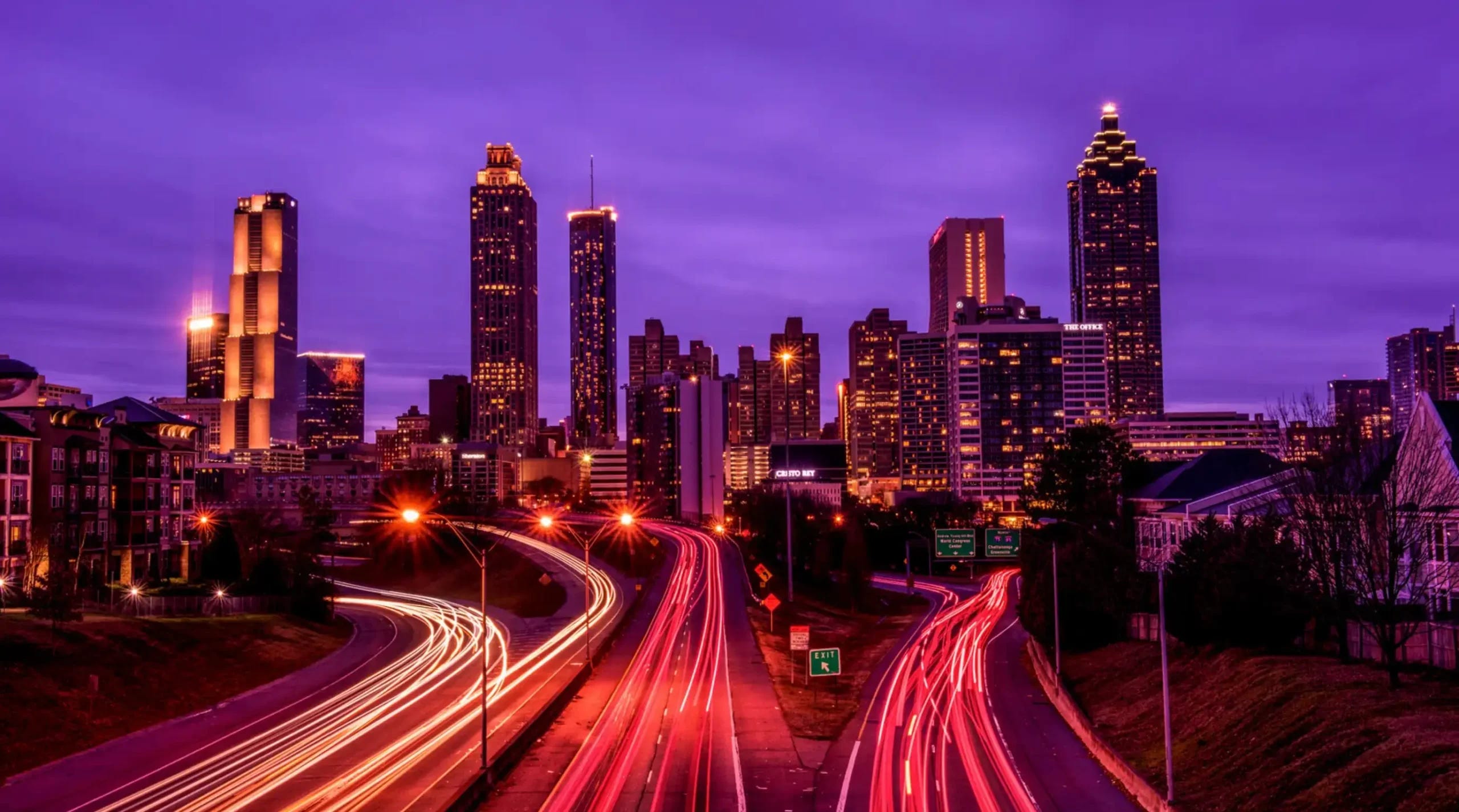
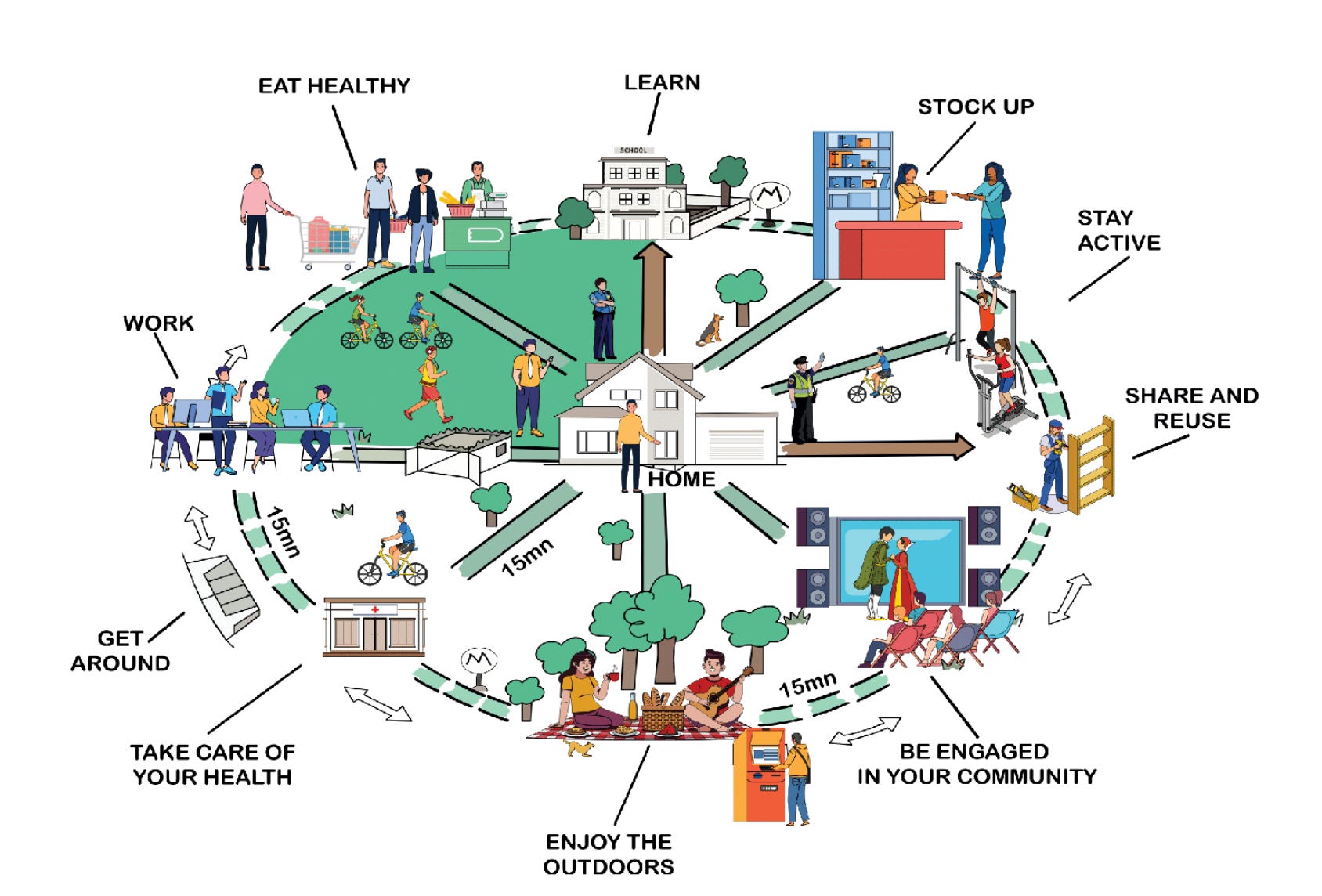
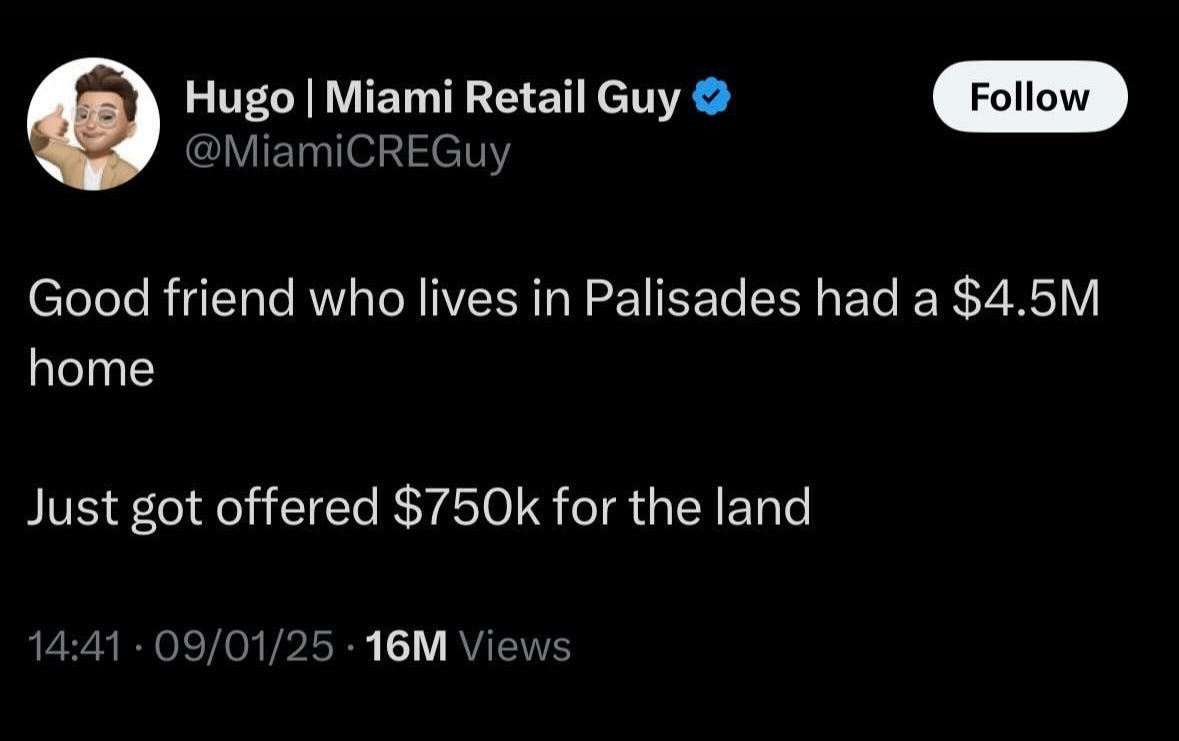
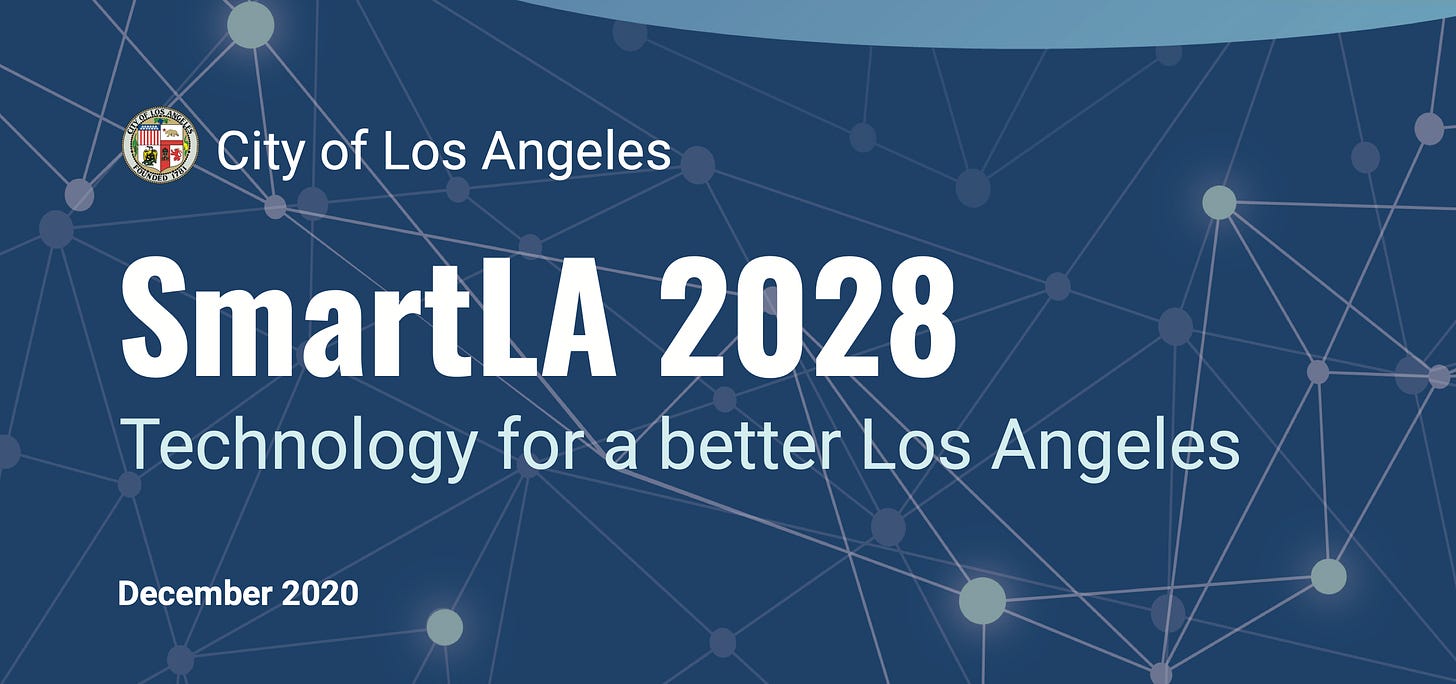
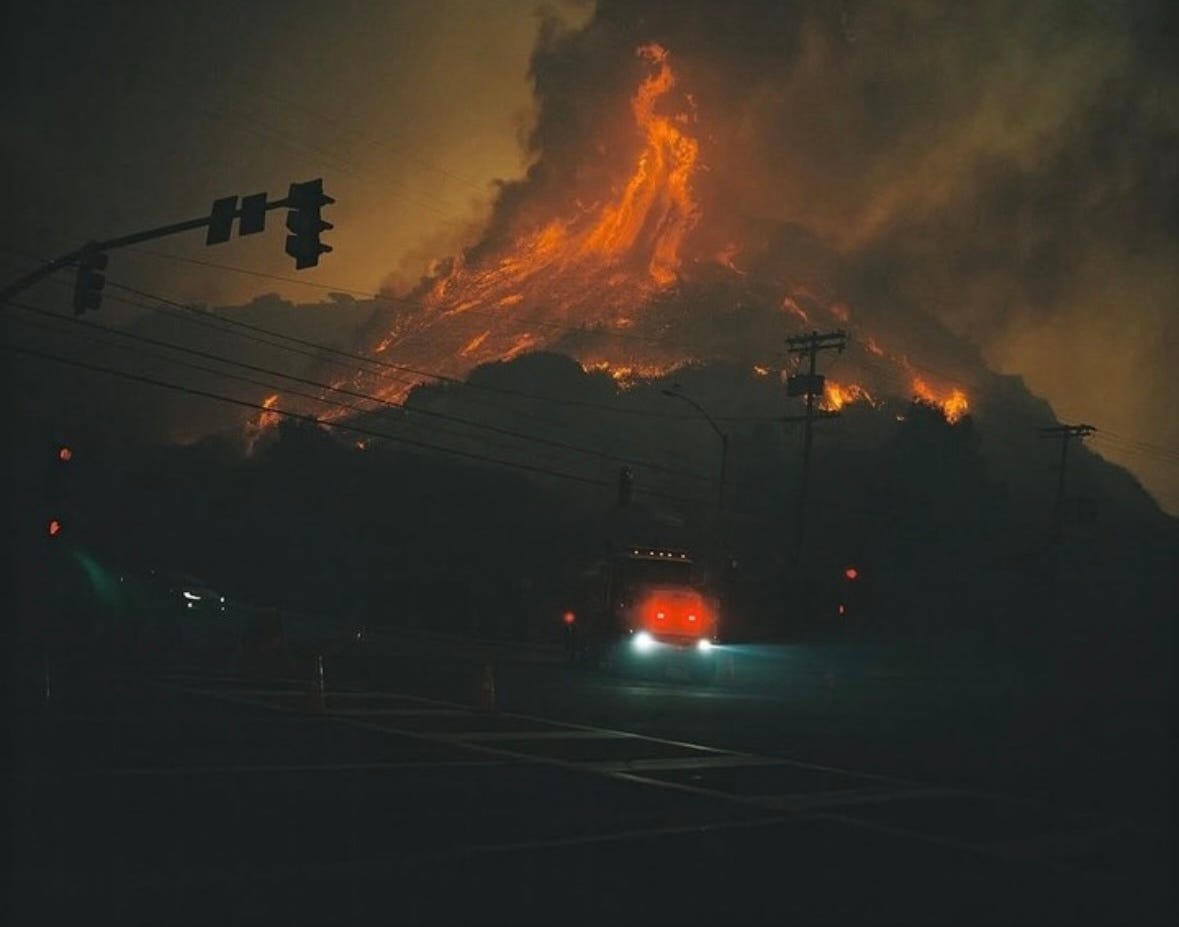
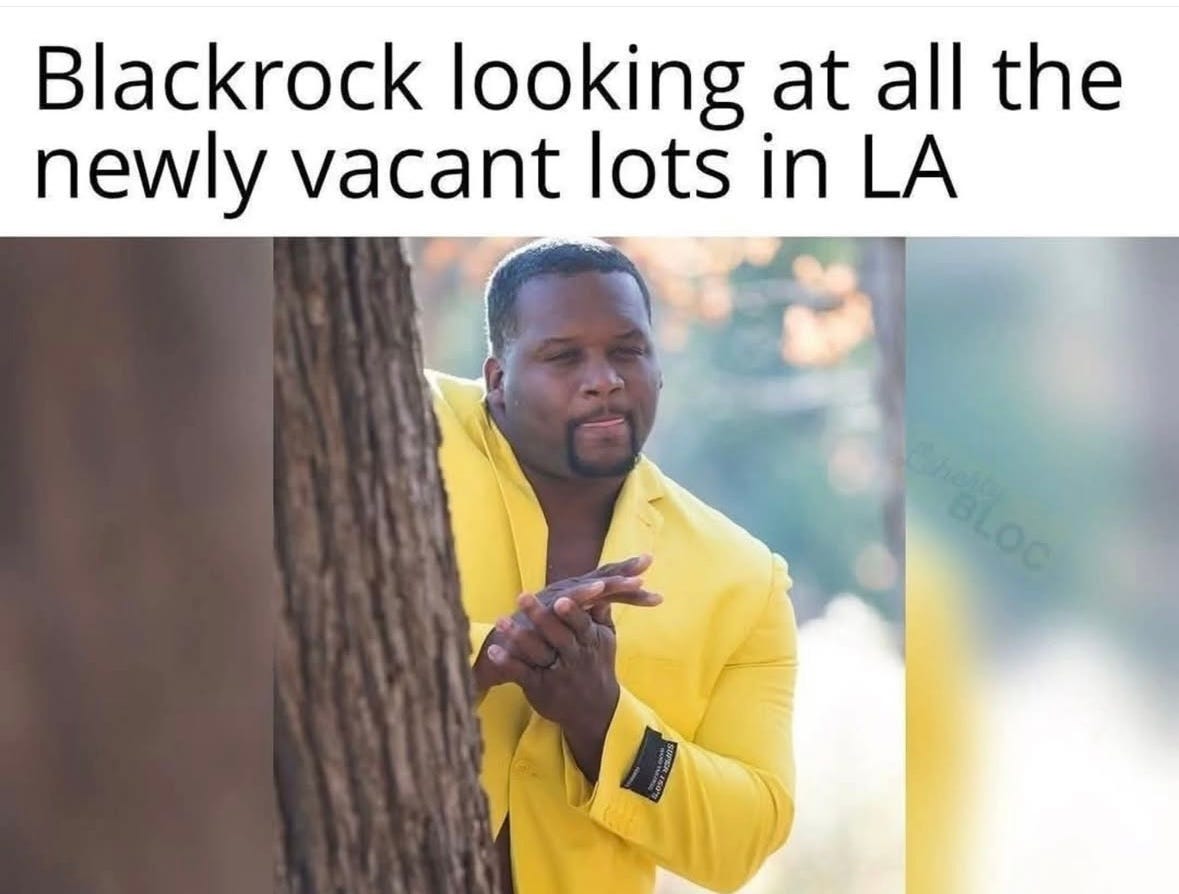
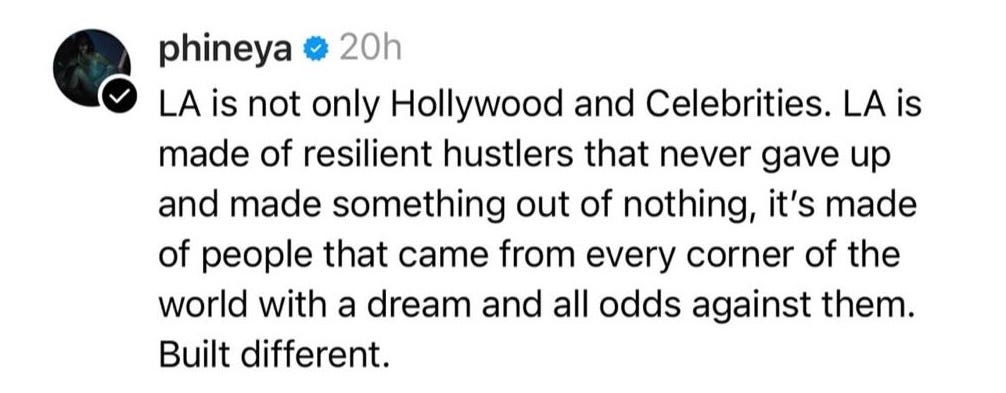
Raising property taxes, homeowner's insurance, and utilities is another way "they" are driving down private home ownership.
"It’s hard not to feel cynical during this tragedy."
Also see: Maui.